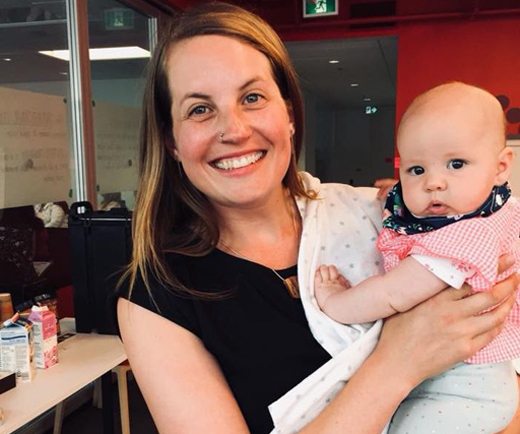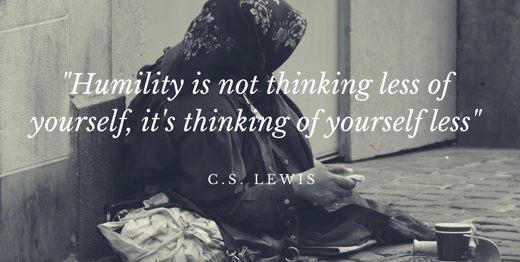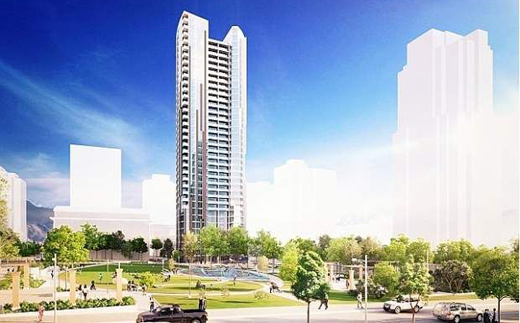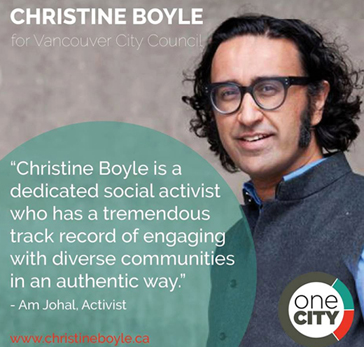
OneCity Vancouver candidate for City Council Christine Boyle doesn’t just shake hands and kiss babies, she will offer to provide child care, in this case for friend, colleague and new baby mama, Tasha Diane - which, as Ms. Diane writes, “Christine’s respect for women and mothers will translate to her advocacy for equitable social policy once elected to Vancouver City Council. We are on Team Christine Boyle! You should be, too!”
The attribute of OneCity Vancouver’s Christine Boyle we most admire is her humility, the bedrock foundation of her hopeful candidacy for City Council.
While what community activist Am Johal has to say about the socially just Christine Boyle is true, as Ms. Boyle herself has written on her campaign website reflects her values and commitment to our city, that …
“It’s time to tackle Vancouver’s deepening wealth gap, ensure that homes are for housing people rather than profits, and strengthen community and democracy, to change the direction Vancouver is headed, and make ours a city where people can live and belong for generations to come”…
… what is also true is that she is not alone in her recognition of the role humility plays, if one is to both achieve elected office and prove an effective community leader. Note should be made that humility is not a decision made by a political aspirant to gain success, but rather an essential part of the very nature of those who are seeking, or already hold political office, an essential element to their success in the common weal of public life.

In the era of Trump, humility has become so out of fashion as to almost have been forgotten. Nonetheless, it is worth articulating why humility is an essential attribute of civic life. Genuine humility and good governance is defined by grace and an intense interest in the lives of others, and if such is the case, the perspective of the public, our neighbours, must be always be taken into account in the taking of decisions in the public realm.
If we in Vancouver have suffered in the civic domain these past 10 years, with an otherwise recommendable civic administration of conscience, the central failure of governance in our city has occurred as a consequence of an unremitting arrogance, and a certitude that what is being done is right and in the collective interest, whether or not community consensus has been achieved, and whether or not the voices of our neighbours have been heard, and the decisions taken by our elected officials in City Council chambers having incorporated the wants, needs and wishes of the public.
 January 27, 2015 | B.C. Supreme Court Justice Mark McEwan threw out a major development in downtown Vancouver over a flawed public hearing process that had ignited criticisms over transparency and fairness at City Hall.
January 27, 2015 | B.C. Supreme Court Justice Mark McEwan threw out a major development in downtown Vancouver over a flawed public hearing process that had ignited criticisms over transparency and fairness at City Hall.
Such perspective was elucidated in the ruling of The Honourable Mr. Justice Mark McEwan in his January 27th 2015 ruling in The Brenhill Development Limited case (the proposed 36-story tower to be built on city land located north of Emery Barnes Park at Helmcken & Richards), a development voted on in favour by the majority Vision Vancouver City Council, and which controversial development proposal was overturned by Justice McEwan arising from the fact that elected officials did not listen to the public, mislead the public as to the scope of the project, and did not incorporate into the final development proposal the input received from the public.
As Justice McEwan wrote in his reasons for judgement …
(120) It is, however, also obvious that, despite this, the public hearing should be a kind of counterweight, and as fair, open and transparent as the nature of the overall project dictates. To be fair, it cannot be conducted on the basis that the public will get just enough information to technically comply with the minimum requirements of a public hearing. The desire of those who have brought the project along to get past the approval stage cannot be allowed to truncate the process. A public hearing is not just an occasion for the public to blow off steam: it is a chance for perspectives to be heard that have not been heard as the City’s focus has narrowed during the project negotiations. Those perspectives, in turn, must be fairly and scrupulously considered and evaluated by council before making its final decision.
(121) I have concluded in this case that the public hearing and the development permit processes were flawed in that the City has taken an unduly restrictive view of the discussion that should have been permitted to address the true nature (of the Brenhill project).
(132) The procedure the City adopted was unfairly restrictive, in presenting the public with a package of technical material that was opaque … in limiting comment on the integrated nature of the project, and in failing to provide an intelligible … financial justification for it.
Vancouver Sun civic affairs reporter Jeff Lee provided further insight into the reasons for judgement, while Green Party Vancouver City Councillor Adriane Carr quite rightly weighed in with …
“With allegations of cosy dealings & large donations from major developers to Vision Vancouver at the base of citizen complaints about a lack of transparency, the judge’s ruling reinforces those concerns,” said Carr. “Unfortunately, that is what many members of the public believe, and it was raised during the election,” she went on to say. “When there is that kind of suspicion, that’s bad for democracy.”
Unsurprisingly, perhaps, given the conservative nature of the Court of Appeals, and unfortunate for the interests of the public — and despite the fealty to her old civic party, Vision Vancouver, and the “joy” 2015 Vancouver Centre federal NDP candidate Constance Barnes felt at the Court of Appeals ruling that were contrary to the public interest and the New Yaletown appellants — on April 23rd, 2015, the B.C. Court of Appeal overruled Justice McEwan’s groundbreaking democratic and public-engaging ruling, siding with the City and the developer. And tears fell from the heavens.
Let us be very clear here: we as a voting public in Vancouver do not want more arrogance in civic governance of our city. We do not want holier-than-thou elected civic officials, whether they are with the so-called “progressive coalition” or the nominally right-of-centre Vancouver Non-Partisan Association dictating what is best for us, and ignoring our voices. We’ve had 10 years of that, and 10 years is more than enough.
In Vancouver, to be a respected, successful and admired politician, one must know what one stands for and what one is fighting for — but it is absolutely critical that the electoral aspirant must know how to go about achieving the ends promised to voters during the course of a campaign for office, how to work with others, to listen to the public — all members of the public — and be a voice for change for the better, and always, always remember that theirs is a life of service, one sometimes admittedly with little reward other than the knowledge one is doing good and performing their very best, all the while keeping deep within them a humble nature, in recognition that no matter the inducements of office, that it was humility and perseverance that elected them to office, and humility that will sustain them, and provide the foundation for their service.
But damn it all, if you’re going to be an elected official, you better darn well listen to the public, bring them along with you, and not find yourself sitting back on your high horse telling the public …
“Oh, deary, I know what’s best for you. Oh sure, I know you think you know what’s best for you, but believe me, I know better than you what’s good for you. Just trust me. And even if you don’t trust me, I’m going to go ahead and do what I damn well please, anyway.”
That’s a recipe for electoral disaster, and a very pissed off public — and if you’ve got any caring, compassion and humility at all, you don’t want that. Take heed candidates. Should you fail to do so, you proceed at your peril.
